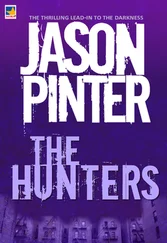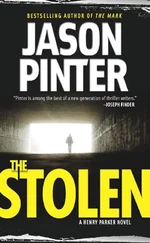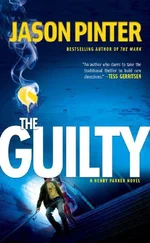Straight line: so what?
While I was in detention in my room, in the dark, I used my mind just as my father had asked me: I reassessed every step, false or not, that I had taken the night I was caught by the British policeman. And I came to certain conclusions. First, there was no doubt that my parents had been right. My being late had been a pointless risk. No clever resistance fighter gets into a confrontation with the enemy unless it is on his own initiative and with the objective of securing an advantage. Any contact between the enemy and the resistance that is not initiated by the latter only benefits the enemy. I had taken an unnecessary risk by staying in the Sanhedriya caves until after curfew had begun, because I was dreaming dreams. A true resistance fighter must subjugate even his dreams to the pursuit of victory. At a time when the fate of the nation was being sealed, dreaming for its own sake was a luxury that only girls might perhaps indulge in. A fighter must be on his guard, especially against dreaming about Yardena, who, although she was almost twenty, still had a girlish habit of arranging the hem of her skirt after she sat down, as if her knee was a baby that needed to be covered up properly, not too little so as to catch cold and not too much so that it will not be able to breathe. And when she played the clarinet it was as though the music came not from the instrument but straight out of her body, passing through the clarinet only to pick up some sweetness and sadness, and taking you to a real, silent place where there is no enemy, no struggle, and where everything is free from shame and treachery and clear of thoughts of betrayal.
That's enough, idiot.
With such thoughts I reached the Orient Palace, with one voice pleading with me to turn around and go home before I got into deep trouble and another making fun of me for being a scaredy-cat, and a third, which was less a voice than a steel vise, urging me to go inside. So I slipped into the bar, avoiding the billiard players in the front room and hoping they did not notice me, repressing the urge to touch the green baize with my fingertips. (To this day I find it hard when I see baize to resist feeling its softness.) A couple of British soldiers with red berets, the sort we called poppies, their tommy guns hanging from their shoulders, were chatting with the barmaid, who laughed as she leaned forward to give them the tankards of frothy beer and a good look at her cleavage, but I didn't spare her a glance. I crossed the smoke and the smell of beer and intrigues and made it safely to the back room. At a table covered with flowery oilcloth, I spotted my man. He was not quite as I remembered him. He was stranger, more serious, more British. He was sitting bent over a book; his thick thighs were crossed, his uniform crumpled and untidy. He wore wide khaki shorts down to his knees, and a wide wrinkled shirt of greenish khaki (as opposed to the yellowish khaki of local manufacture that my father wore). On his shoulders I could see the silvery glint of his policeman's number, which I had memorized on the first night: 4479. An easy, pleasant number. His pistol had slipped around again and was squashed between his back and the back of the chair. In front of him on the table were an open Bible, a dictionary, a glass of yellowish lemonade that had lost its fizz, two more books, an exercise book, a crumpled handkerchief, and an open bag of candy. As he beamed at me, his face looked slack, as though he had too much skin, which had a slightly unhealthy hue, like melted vanilla ice cream. His cap, the one that he had placed briefly on my head that night, was lying at the edge of the table, looking more authoritative and official than Sergeant Dunlop himself. His hair was brown and thinning, and he had a ruler-sharp part right in the middle of his head, like the watershed that we had been learning about in geography.
From his vague smile I realized that he didn't remember me.
"Hello, Sergeant Dunlop," I said in Hebrew.
He went on smiling, but then blinked.
"It's me. From the curfew. You arrested me in the street and took me home and released me. You suggested we should teach each other Hebrew and English, sir. So here am.
Sergeant Dunlop reddened and said:
"Oh. Ah."
He still didn't remember a thing. So I reminded him:
"'Let not the lad go astray in the darkness.' Don't you remember, sir? About a week ago. You say enemies not enimies?"
"Oh. Ah. So it is thou. Sit down. And what is thy wish this time?"
"You suggested we should study together. Hebrew and English. I'm ready."
"Oh. So. Thou earnest according to thy promise. Blessed is he that waiteth and cometh."
And that is how our lessons began. By the second meeting I had agreed that he should order a lemonade for me, even though in principle we shouldn't accept anything from them, not a thread or a shoelace. But I weighed it and decided that it was my duty to gain his confidence and dispel any hint of suspicion from his mind, so that I could get him to provide the information we needed. And that is the only reason I forced myself to take a few sips of the lemonade, and also accepted a couple of crackers.
We read a few chapters together from Samuel and Kings. We discussed them in modern Hebrew, which Sergeant Dunlop hardly recognized. The words for crane, pencil, shirt filled him with wonder because they have grown out of ancient words. Meanwhile, I learned from him that English has a tense that has no equivalent in Hebrew, the present continuous, in which every verb ends with a sound like the touch of glass on glass: ing. In fact, the ring of glass on glass helped me to understand this English tense: I imagined a light clink of glasses and with it a faint chime of this continuous present, moving further and further away, weakening, growing fainter and fainter, fading in the distance with a delightful continuousness that was pleasant to listen to, right to the end, without turning to any other activity while the sound was dimming, disappearing, dissipating, and fading. Such listening could fittingly be called a Continuous present.
When I told Sergeant Dunlop about the sound of glass that helped me to grasp the continuous present, he tried to praise me, but he got in a muddle and uttered some English words that I did not fully understand. What I did understand was that, like everyone on our side, he found it easier to express ideas than feelings. I myself had a feeling at that moment (a mixture of affection and shame), but I stifled it because an enemy is an enemy and because I was not a girl. (So? What about girls? What have they got that attracts us so? Not like glass on glass, more like a ray of light on glass? And until when is this feeling forbidden? Until we are grown up? Until there are no enemies left?) After the third or fourth meeting we shook hands, because spies are allowed to and because I had managed to teach Sergeant Dunlop the difference between the silent and the mobile shva in Hebrew. I had never been a teacher, yet here was the sergeant calling me a brilliant teacher, and I was pleased, but nevertheless I said, "You're exaggerating, sir." (I had to explain the Hebrew word for 'exaggerate,' because it's not in the Bible. Though a kind of locust or grasshopper has a similar name. I must check whether there's any connection.)
Sergeant Dunlop was a patient, slightly absentminded teacher, but when we swapped roles, he became a quiet, attentive pupil. When he was writing Hebrew, he concentrated so hard that his tongue stuck out of the corner of his mouth, like a baby's. Once he muttered "Christ," but immediately corrected himself in embarrassment and said in Hebrew, "God Almighty." I had a special reason to shake his hand warmly at the end of the fourth lesson, because I had managed to extract a precious piece of information from him:
Читать дальше












